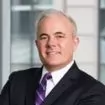Each teaching hospital should assess the state of its administrative refund claims in order to be prepared for a contact from the IRS.
The Internal Revenue Service (IRS) has made an administrative determination to accept the position, advanced over a number of years by teaching hospitals, that medical residents are exempt from Federal Insurance Contributions Act (FICA) taxes based on the so-called "student exception." The IRS's determination applies to tax periods ending before April 1, 2005, when new IRS regulations went into effect.
Under the IRS's announcement, made on March 2, 2010, teaching hospitals with timely filed tax-refund claims (including "protective" refund claims) asserting that stipends paid to medical residents are exempt from tax under 26 U.S.C. § 3121(b)(10)—the Student Exception—can expect to be contacted by the IRS within the next 90 days. Teaching hospitals already in federal court pursuing a refund will also receive the benefit of the IRS's concession and will receive expedited consideration by the IRS if they choose to forego their refund action in favor of administrative proceedings with the IRS. Thus, each teaching hospital should assess the state of its administrative refund claims in order to be prepared for a contact from the IRS under this settlement initiative.
The IRS's announcement was a reversal of a position that the IRS had steadily maintained for the past 15 years. The IRS's position was the subject of extensive litigation, which ebbed and flowed over the years but which was ultimately resolved in favor of the teaching hospitals. Many teaching hospitals sued the IRS for a refund in federal court instead of waiting for the IRS to act on their refund claims. McDermott Will & Emery was counsel of record on seven of the significant victories on the pre-regulation FICA quarters, including game-changing appellate court victories in the Eleventh, Seventh and Second Circuits, and the landmark trial victory on the Student Exception in the U.S. District Court for the Southern District of Florida.
The IRS press release and related FAQs are available at www.irs.gov/charities.
The IRS's decision has huge significance, as most of the United States' 375 teaching hospitals have had pending with the IRS claims for refund reaching as far back as 1994—claims that address billions of dollars in tax and interest. For those matters not filed in federal court, the IRS will, within 90 days, begin contacting teaching hospitals and medical residents who filed FICA refund claims for these periods, providing more information about the procedures.
For teaching hospitals with claims filed for quarters before April 1, 2005, a comprehensive review with experienced tax-litigation counsel of the claims and next steps should be conducted in anticipation of contact by the IRS.
The IRS announcement makes clear that it is not conceding the applicability of the Student Exception for quarters subject to the amended Treasury Regulations (applicable to quarters beginning on April 1, 2005). Many teaching hospitals have filed claims asserting that this regulation is invalid and that refunds are due; a federal district court in Minnesota twice held that the regulation is invalid, although that decision was subsequently overturned by the federal court of appeals in St. Louis. (Refund claims for quarters in 2006—which should be set out on Forms 941X and 8275-R—are due not later than April 15, 2010.) With regard to quarters that are purportedly governed by the regulation, teaching hospitals should consult with tax-litigation experts about next steps—and teaching hospitals with significant amounts of tax at stake should seriously consider getting into court sooner rather than later with a challenge to the regulation, which, as noted, appears vulnerable.
The content of this article is intended to provide a general guide to the subject matter. Specialist advice should be sought about your specific circumstances.



